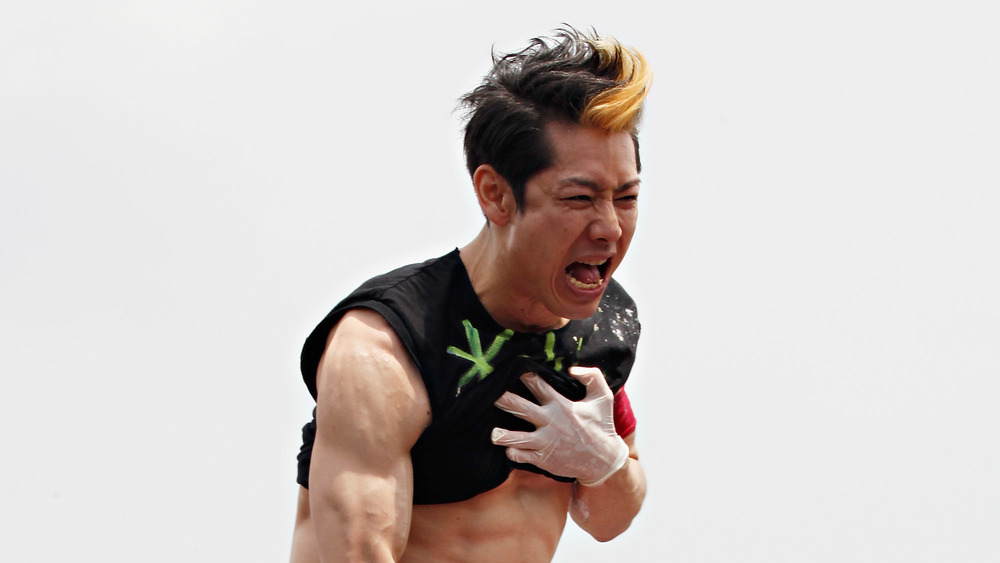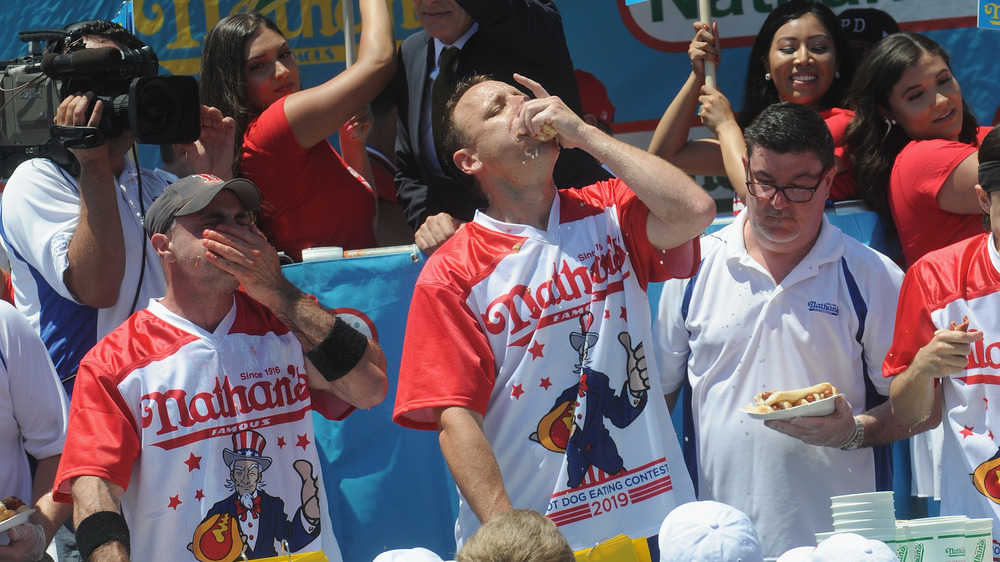The Health Issues Kobayashi Has Experienced From Competitive Eating
Takeru Kobayashi just might be uniquely built for the world of competitive eating. He can shovel down hot dogs by the dozen and yet still boasts washboard abs, for one. Kobayashi is also over 40 years old but has no problem consuming 62 slices of pizza in 12 minutes, or 337 chicken wings in a half hour (via ESPN). A true athlete of the food world, Kobayashi has avoided most major injuries that can happen in the sport, but that doesn't mean he's immune from all the consequences of extreme eating.
First of all, Kobayashi has been very open about the fact that he doesn't just go to a contest and eat a week's worth of food. Like fellow competitive eater Miki Sudo, Kobayashi trains regularly to extend his limits and prevent injury. "I have to put something inside the stomach to make it expand, but it doesn't necessarily have to be food. I train with water," he said. "So, I'm not training for long periods of time by hauling food. I'm training with water expanding my stomach," (via People).
But even with all that training, he can feel an immediate strain on his body. "When my stomach becomes very full with that amount of food inside, the organs in my body begin to shift places," Kobayashi told The Associated Press. "So, for example, my lungs get shifted up, and they can't expand. They have no room to expand. So, when I breathe, I become very short of breath."
Competitive eating is rife with risk
At 29 years old, Kobayashi's career was almost over because of a painful and arthritic jaw, "Already I can't open my jaws more than just a little bit," he told fans. "There's no pain only if I open my mouth about enough for one finger. More than that is painful and I can't open it" (via People). The competitive eater blamed the injury on training too hard and pushing too strongly for new world records. The result, he said, was that "My jaw refused to fight anymore ... [it] has abandoned the frontline."
While Kobayashi was lucky enough to recover and compete professionally again, others may experience lasting damage via competitive eating. Serious and far-too-common consequences from these binges include gastric ruptures and dangerously low drops in sodium levels that can lead to seizures. For some, competitive eating can trigger eating disorders. Says Kim Dennis, a board-certified psychiatrist, "Putting all of the health risks aside, there are certainly some psychological or psychiatric risks with regards to development of an eating disorder for people who had any sort of genetic predisposition to have one" (via USA Today).
We can only hope that Kobayashi will be as fortunate in avoiding the psychological risks as he has been at avoiding the physical consequences of this extreme sport.

